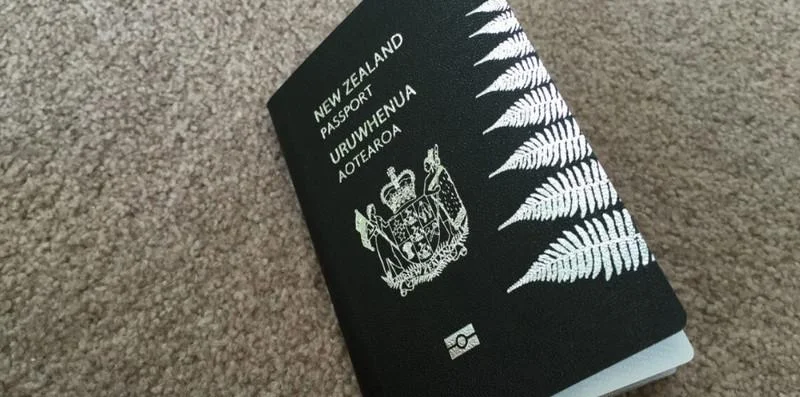Study in New Zealand: Requirements, Costs & Intakes
15 Oct 2025
Your understanding of the study in New Zealand requirements will give you a headstart for a seamless transition into your academic adventure.
With globally-recognized universities and an all-round education system, the country offers an excellent blend of opportunities, culture, economic stability, and climate for foreign students to grow.
So, if you have ever wished to study in New Zealand, this blog is for you. Now let’s explore what steps to fulfill your eligibility to study in NZ.
1. Admission Requirements to Study in New Zealand for International Students

It is thrilling to take the leap of studying in New Zealand! Let’s prepare you with the study in New Zealand requirements for admission:
- Qualification/Grades Requirements
- Entrance Tests Requirements
- Visa Requirements
- English Language Proficiency Scores
- Other necessary documents
1.1. Qualification/Grades Requirements
This section lays out the Qualification/Grades requirements for global students aspiring to study in New Zealand, equipping you with the knowledge to collect the papers.
These requirements for your eligibility to study in NZ are always the first in the list as you set sights on this academic journey. If you haven’t had them yet, that means you still have time to improve your grades to polish your application a little bit.
These study in New Zealand requirements for overseas students vary depending on the levels of degree:
| Type of Degree | Requirements |
| Bachelor’s degree |
|
| Master’s degree |
|
| PhD |
|
1.2. Entrance Tests Requirements
Your wish for academic success in New Zealand will be challenged by the entrance tests, one of the study in New Zealand requirements for abroad students. So, let’s have a look at which entrance tests are required for each level of study in NZ for international students.
| Level of Study | Requirements |
| Undergraduate |
|
| Graduate |
|
1.3. Visa Requirements
A New Zealand study visa is required for international students whose courses last longer than three months. Meanwhile, the Fee Paying Student Visa is required for students choosing to pursue a bachelor’s or master’s degree in New Zealand.
The following documents must be submitted in order to apply for a visa:
- A passport that is currently valid for at least three months beyond the day you want to leave New Zealand.
- An offer of admission from a school that has been approved by the New Zealand Qualifications Authority (NZQA), including information about the course’s duration, cost, and accreditation.
- Evidence of your financial capability of living expenses and tuition (NZ$1,667 per month for shorter stays or NZ$20,000 per year).
- Certificates, diplomas, or academic documents
- A flight ticket back to your own country
- A medical and X-ray certificate are required if you stay longer than a year.
- A police certificate attesting to your moral fiber.
- An institution’s written declaration that it will assume responsibility for you.
- Evidence that your visa application fee has been paid.
- 2 passport-sized photos.
- Consent from a legal guardian is required if you are under the age of 18.
Now let’s move to the visa application process after you finish gathering all the above documents.
- Step 1: Scan all the collected documents into a PDF format.
- Step 2: To apply online, go to the official immigration website and register. Instead, if you want to apply in person, schedule an appointment and pick up an application form at the closest embassy or consulate.
- Step 3: Complete the application and send it in with the other paperwork.
- Step 4: After paying the roughly NZ$530 visa application fee, you now have to wait for your application to be approved.
- Step 5: Processing an online application for a student visa to New Zealand takes roughly 20 days. Applications submitted offline could take up to 25 days. Therefore, applying at least 6 weeks before your vacation to New Zealand is critical.
1.4. English Language Proficiency
In New Zealand, universities usually require students to demonstrate their English language skills through tests. The table below shows the accepted English language tests and the minimum score required to study in NZ for international students.
Source: New Zealand Immigration
Yet, we only dive deeper into 2 most popular tests that most students choose: IELTS and PTE Academic Tests.
1.4.1. IELTS Academic Requirement
All New Zealand universities accept IELTS Academic. So you can be eligible for a study visa when you attain the required IELTS score.
| Level of Study | Minimum IELTS Score Required |
| Undergraduate | 6.0 with no band less than 5.5 |
| Postgraduate | 6.5 with no band less than 6.0 |
Note: A minimum score of 7.0 overall and in each band is required for programs like Engineering, Teaching, or Education Studies in universities that are highly ranked in the business or STEM fields.
1.4.2. PTE Academic Requirement
All New Zealand universities, including the University of Auckland and the University of Otago, accept PTE Academic. Additionally, all training facilities, polytechnics, and technological institutes accept it.
| Level of Study | Minimum PTE Score Required |
| Undergraduate | 50-64 |
| Postgraduate | 58-79 |
To provide further details, we have included PTE Academic Score Requirements for Top New Zealand Universities in the table below.
| PTE Score for Undergraduate | PTE Score for Postgraduate | |
| University of Auckland | 59-65 | 65-91 |
| University of Otago | 59-64 | 64-91 |
| University of Canterbury | 59-65 | 65-91 |
| Victoria University of Wellington | 59-65 | 65-91 |
1.5. Other Documents Required for NZ study intakes
To finish the application procedure correctly, you will need other documents in addition to the ones mentioned above. Please have the following paperwork on hand to ensure a smooth admission process and guarantee your eligibility to study in NZ:
- Academic transcripts
- Statement of Purpose (SOP)
- Letters of Recommendation (LOR)
- Resume/CV (for postgraduate courses)
- Achievement certificates for any extracurricular activity
- Letter of Intent (LOI) from two employers if you have prior job experience or are already employed.
- LOI from your college or school
- Updated portfolio to be used for admission to New Zealand’s creative courses.
2. The Cost Breakdown for International Students in New Zealand
2.1. Cost to Study in NZ for International Students
The cost of studying in New Zealand could be affordable, based on the university and study program you decide on. Tuition costs, however, might differ for both public and private educational institutions. While other education prices vary from a low start, medicine and veterinary science are always costly.
Generally, tuition fees can cost up to NZ $20,000 on average.
| Type of Degree | Tuition Fee (NZ $) |
| Bachelor’s degree | $20,000 – $40,000 |
| Master’s degree | $20,000 – $45,000 |
| PhD | $6,500 – $7,500 (per year for most subjects) |
Besides, there are other expenses related to your study you can expect:
- Textbooks and supplies: You should set aside money for course materials, textbooks, and stationery, which can run into the hundreds of dollars annually.
- Application fee for a student visa: Usually, this costs about NZ$330.
- English language proficiency exams: The price of English language competence exams like the IELTS or PTE, if necessary.
It’s critical to prepare your budget appropriately and investigate the precise expenses related to the program and institution of your choice. Additionally, take into account financial aid and scholarships that could help cover some of your costs.

2.2. Cost of Living Requirements to Study in New Zealand
New Zealand has an annual cost of living of NZ $20,000. It is affected by many factors, including:
- Destination: In general, larger cities like Wellington and Auckland have higher costs.
- Lifestyle: Costs will rise if you travel, eat out a lot, and take up pricey hobbies.
- Currency exchange rates: Students may have to pay more for tuition and living expenses in their home currency if their home currency weakens relative to the currency of the host nation.
Take a look at the breakdown of the approximate costs below:
| Expenses | Amount (NZ $) |
| Accommodation | $800 – $2,000+ |
| Utilities | $50 – $80+ |
| Food and Groceries | $60 – $700+ |
| Health Expenses | $40 – $100+ |
| Transportation | $100 – $200+ |
| Others | $100+ |
This is only a rough estimate as actual costs can differ significantly. So, let’s dive into a more thorough analysis to assist you in making efficient financial plans.
- Accommodation:
-
- On-campus: NZD 140 – 400 a week but remember that on-campus housing may have waiting lists and can be competitive.
- Off-campus: Weekly rates for shared apartments range from NZD 100 to 300 NZD . Rent for a one-bedroom apartment in city centers can be significantly higher, ranging from NZD 1,800 to 2,500 per month.
- Utilities: NZD 150 – 300 per month, including electricity, gas, internet, and water.
- Food and Groceries:
-
- Cooking at home: NZD 60 – 100 per week
- Dining out: Although prices vary widely, it is obvious that you would budget more than you do for home cooking.
- Healthcare: Although the healthcare system in New Zealand is public, many citizens choose to supplement their coverage with private health insurance. The cost of insurance varies.
- Transportation:
-
- Public transport: NZD 100 – 150 per month, depending on the city
- Other options: Cycling or walking, which are both popular and cost-effective in many New Zealand cities. Or, owning a car, which comes with extra costs like gas, insurance, and upkeep.
- Entertainment: Depending on your interests, entertainment and leisure activity costs can vary significantly.
3. Intakes in New Zealand: A Complete Guide
3.1. Timeline for Intakes in New Zealand 2025
The three main intakes in New Zealand are February, July, and September. Although these are the main options, other universities also accept applications all year long through rolling intakes. Learning about the New Zealand intakes will give you incredible flexibility when planning your schedules.
The NZ study intakes and deadlines by semester are shown in the table below.
| Intake | Semester | Deadlines | Description |
| February | Semester 1 (February to June) | Between November (of the previous year) and January |
|
| July | Semester 2
(July to November) |
Between March and May |
|
| September/November intake | Trimester 3 | Varies by program |
|
| Rolling intakes | Various times throughout the year | No deadlines |
|
Note: Particularly at the postgraduate level, some universities could have specialized start dates for particular courses or provide several intakes for particular programs. Hence, always check your selected institution’s official website for the most precise and current information about admissions and application deadlines.
3.2. The Application Process for New Zealand Intakes

When it comes to university applications, timing is crucial! Applying early is highly recommended because popular courses may have limited availability.
To make your application process as smooth as possible, you need to keep track of the NZ study intakes and outline a thorough plan for your application process.
Here is the application process for the NZ study intakes:
- Step 1: Make a shortlist of your preferred institutions, universities, and courses.
- Step 2: Look through each college’s website to learn more about their courses and requirements.
- Step 3: Attend the necessary tests, such as the language assessments.
- Step 4: Make SOPs & Obtain LOIs.
- Step 6: Create a CV/resume alongside a cover letter.
- Step 7: Get ready for the interviews.
- Step 8: Apply for a student visa to New Zealand as soon as you have the Letter of Acceptance (LOA).
4. Conclusion
Living and studying in New Zealand as an international student is an amazing experience. However, there are some of the study in New Zealand requirements you need to meet in order to accomplish your ambition.
With our article, we hope you get the picture of how things will be done. Take your time to go over every detail and make a strategic plan.
In the meantime, you can lay the first brick with PTE Magic – your one-stop online test resource for accessible how-to videos, PTE Academic practice tests and preparation tips from PTE experts.
Moni Vuong
PTE Magic
My name is Moni, and I am a seasoned PTE teacher with over 6 years of experience. I have helped thousands of students overcome their struggles and achieve their desired scores. My passion for teaching and dedication to my student’s success drives me to continually improve my teaching methods and provide the best possible support. Join me on this journey toward PTE success!
Frequently Asked Questions
What’s the difference between PTE Academic and PTE Core?
What is PTE Exam Structure and Duration?
How is PTE exam scored?
What tasks are included in PTE Academic?
What tasks are included in PTE Core?
How long is the score valid?
Where can I book PTE Academic and PTE Core exams?
How much does the PTE exam cost?
How can I prepare for the PTE Exam?
Subscribe to our newsletter.
PTE Magic Practice Platform is an AI-powered PTE test prep platform that helps you achieve your desired score with exam-like questions, instant AI scoring, and personalised feedback. Achieve your best PTE score with targeted practice and proven strategies.



